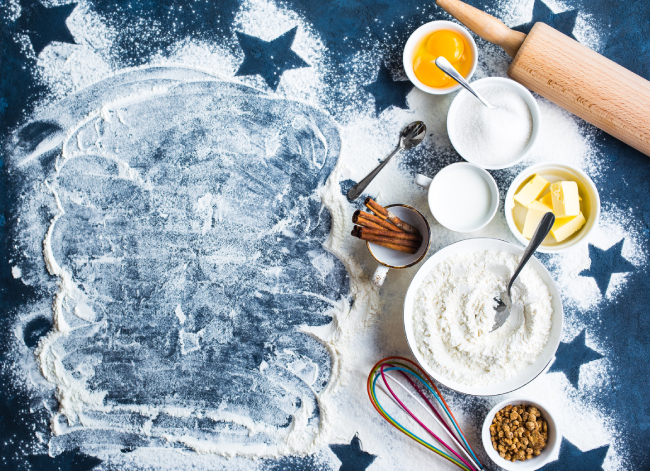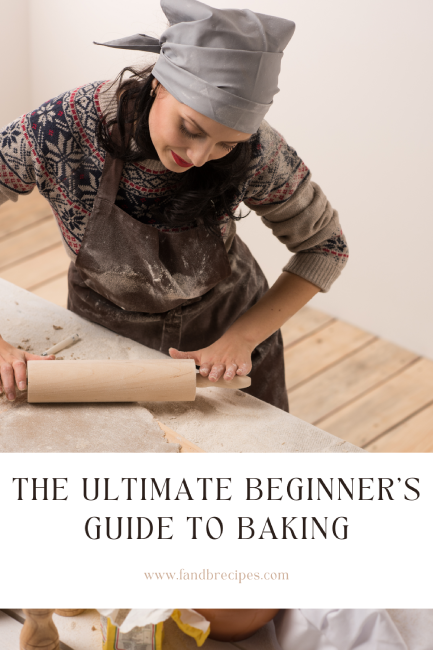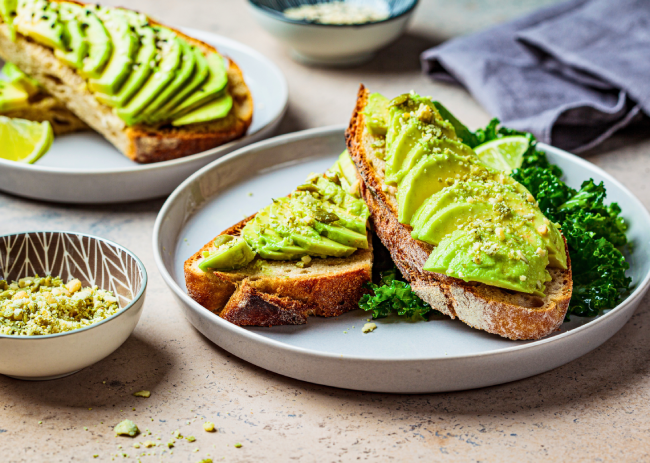The Ultimate Beginner’s Guide to Baking
Want to get started with baking, but do not know where to begin? Here are some expert tips to help elevate your bakes, even if you’ve never baked anything except pre-made cookie dough.
Follow the recipe.
If you started cooking before you started baking, then you are probably used to being able to deviate significantly from a recipe — or even deviate from it completely — and still have your end result turn out all right. Unfortunately, this is not the case with baking recipes at all. They are precise chemical reactions that need to be as close as possible to get the end result that you want. Always read the recipe through completely before beginning to bake and do not stray from it.
Measure everything precisely.
When a recipe calls for ⅛ of a teaspoon, it really does mean ⅛ of a teaspoon. Every single ingredient should be measured exactly according to the instructions, with as little deviation as possible. Even just a little bit too much or too little — or even worse, skipping an ingredient altogether — can totally destroy your bake and turn it into a rubbery mess or an overbaked brick. Pro tip: Greasing your measuring cups with a tiny bit of olive oil will keep viscous ingredients such as raw honey from sticking to the cup.
Get a kitchen scale.
Speaking of getting precise measurements, we recommend getting a kitchen scale once you decide that baking is a hobby you want to do regularly. Measuring by volume varies too much for your baking results to be really precise, but measuring by weight will ensure that you add exactly one cup of flour every time. Fortunately, kitchen scales are not a big investment, and their slender profile means that they will not take up much room in your cabinet next to your other kitchen accessories.
Lay out all your ingredients.
We know that it can feel like extra effort to lay out your ingredients before you start mixing them together, but we promise that it will save you time in the long run. Having all your ingredients ready to go will also ensure that you can add them at the right time and prevent overmixing. It is way too easy to over-beat your batter when you turn your back for just a second to rummage in the pantry for a missing ingredient, so prevent that from happening by laying everything out beforehand.
Pay attention to the temperature.
The temperature of ingredients is extremely important, so if a recipe calls for room-temperature butter, eggs or milk, do not add it straight from the fridge! Ingredients that are all at the same temperature will emulsify together and result in a final bake that has a uniform texture. Occasionally, you will find a recipe that calls for warm or cold ingredients, which you should also pay attention to. For instance, pie crust and scone recipes usually call for cold butter, which results in a flakier texture that is ideal for them. Never add a hot ingredient to the batter, though. That will kickstart the cooking process and potentially ruin the recipe.
“Do not mix cold eggs (directly coming out from the fridge) into the mixture; it will create lumps and spoil your baking in the end.” – comments Hope Bell, the owner of Chummys Bakery.
Get an oven thermometer.
Speaking of temperatures, we really recommend getting an oven thermometer so that you know the true temperature of your oven. The number on the dial is only approximate at best, and some ovens can vary by dozens of degrees, which will have a big effect on your final bake. Having an accurate oven thermometer will help you to avoid both overbaking and underbaking so that your recipes turn out perfect every time. Make sure to keep the oven door closed as much as possible to prevent heat from escaping and your bakes from collapsing.
Prep your pans.
If you do not prep your pans, then you will need to spend a considerable amount of time chipping the remains of your bake off the bottom. Even nonstick pans need to be greased with a little bit of extra virgin olive oil before you pour the batter in. Silicone baking sheets are a great option for cookies and other items that cook on baking sheets, whereas parchment paper cutouts are a must for cake pans.
Invest in a stand mixer.
Once you know that you want to keep baking indefinitely, we recommend investing in a stand mixer if you have the budget and the kitchen counter space for one. Stand mixers make it much easier to mix your ingredients together and take a lot of the physical work out of it. If you are not quite ready to invest in a stand mixer, a hand mixer is more affordable and can help fill in the gaps. It is not quite as low effort as a stand mixer, but it is much easier than mixing everything together manually.
Keep trying.
Baking is more difficult than it seems, and you are bound to make some mistakes in the beginning. In fact, even the most veteran bakers still continue to make mistakes (yes, even those who went to pastry school!). Do not be put off by baking altogether when your bake does not turn out the way you want it to — or even turns into a complete disaster. Keep trying and your skills will get better over time — and probably much faster than you were expecting!




